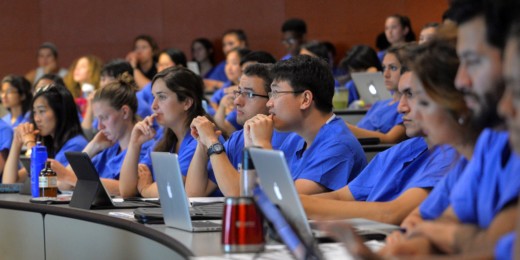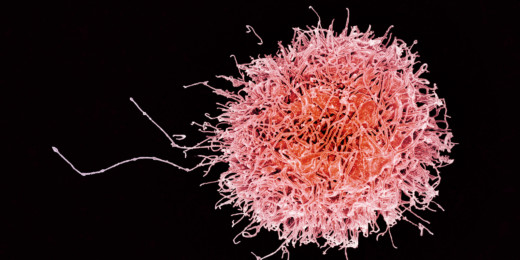Lisa Medoff, a learning strategies specialist at Stanford Medicine, discusses some of the challenges facing medical students.
Author: Kimber Price
Scientific literature overload: Tips for staying on top
Researchers and clinicians use a variety of tactics to keep up with research in their field. A few share their tips here.
The stop and go of the cell cycle: Research reveals an important checkpoint
Stanford scientists have discovered the signaling pathway responsible for making sure all DNA is replicated before cell division can occur.
Digging out of the opioid epidemic won’t be easy, new model illustrates
Even substantial efforts in reducing opioid addiction, preventing overdoses and providing addiction treatment won't curb the crisis any time soon.
Pediatricians could help lower rate of unplanned pregnancies
Two Stanford physicians would like to expand role of pediatricians in family planning and contraception for both teenagers and new mothers.
Immune cell ratios predict shift to active tuberculosis, Stanford-led study finds
The ratio between a certain types of immune cells is able to predict whether latent TB will shift into an active infection, new research has found.
Does medical school take too long?
A Stanford School of Medicine alumnus makes a case for condensing medical school curriculum into fewer years to provide more doctors.
Stanford Medicine’s chief wellness officer reflects on burnout, and on his own strategies to stay healthy
Stanford's Tait Shanafelt is working to address physician burnout, which impacts physicians' quality of life as well as patient care.
New technology provides a better understanding of cells and their neighbors
New technology developed at Stanford Medicine automatically identifies cell types and provides view of how cells interact with their environment.
Some gut bacteria protect against Salmonella, new research suggests
Propionate molecules made by intestinal bacteria inhibits growth of Salmonella and may be a promising new treatment for gut infections.
Curbing hepatitis B in the United States will save lives and money, according to a new study
Targeted screening can cut hepatitis B related deaths in the U.S. by half - and save money.
Stanford researchers collaborate to develop test for a rare and deadly disease
Fanconi anemia inspired a collaboration between Stanford scientists to develop a method for detecting problematic molecules known as aldehydes.













